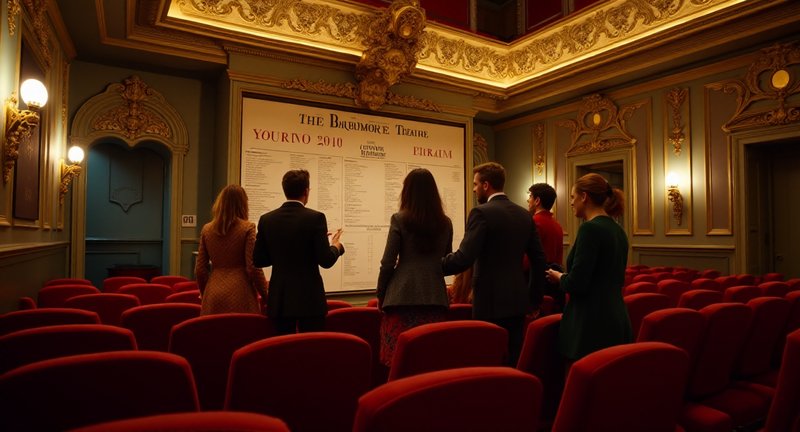The Basics of Santa Cruz Property Tax
Navigating the labyrinth of Santa Cruz Property Tax can feel like deciphering an ancient code. From my experience, understanding this tax is essential for any property owner in this stunning coastal enclave.
First, let’s consider the assessment process. Every property is evaluated based on its market value, which can fluctuate like the tides. This means your tax can vary, so it’s wise to keep an eye on the real estate market.
Then, there are exemptions that could lighten the load. For instance, veterans and seniors may qualify for reductions, allowing them to breathe a bit easier financially. It’s a good idea to explore these options; you might be pleasantly surprised.

Now, how do we actually pay this tax? The due dates can sneak up on you, often arriving at the end of the year. I’ve found that setting reminders is a lifesaver, preventing any unwelcome surprises when the bills come rolling in.
Also, don’t forget about appeals. If you believe your property’s value is overestimated, you have the right to contest it. Speaking from experience, gathering evidence and presenting your case can make a significant difference.
Understanding Santa cruz real estate tax is not just a task; it’s an adventure into the point of homeownership. Equip yourself with knowledge and stay proactive for a smoother journey.
The Essentials of Santa Cruz Property Tax
Navigating the maze of property taxation in this coastal gem can feel like a stroll through a beautifully landscaped garden breathtaking yet perplexing. Having spent some time deciphering the nuances of local levies, I’ve gathered a few essentials that can help demystify the process.
First and foremost, understanding the local assessment can save you from unexpected surprises. Here’s what you need to keep in mind:
- Assessment Rate: Typically, properties are assessed at a percentage of their market value. Familiarize yourself with how your home fits into this equation.
- Exemptions: Don’t overlook potential exemptions that might apply to you be it for veterans, seniors, or low-income households. These can significantly lighten your tax burden.
- Appeal Process: If you feel your property’s value has been overestimated, remember you have the right to appeal. Documenting your case thoroughly can make a difference.
Now, let’s talk about deadlines. Mark your calendar! The tax year doesn’t wait for anyone, and being late can lead to penalties that make even the most laid-back beach lover cringe.

Also, consider working with local experts. Whether it’s a tax consultant or an attorney, their insights can guide you through this intricate landscape. They often know the ins and outs that can save you both time and money.
Embarking on this journey may seem daunting, but with the right information and resources, you’ll navigate it like a seasoned local, enjoying every step along the way.
Overview of Property Tax Rates in Santa Cruz
When I first ventured into the real estate world in this charming coastal city, I was astounded by the nuances of local tax obligations. The rates here can feel like a rollercoaster, fluctuating with the winds of state regulations and local budgets.
Navigating these waters isn’t just about crunching numbers. It’s essential to understand how property values influence tax rates higher home prices can mean heftier bills, which can be a shock for newcomers.
As a homeowner, I’ve learned that staying informed is crucial. Regular assessments can reveal surprises, making it vital to keep an eye on property valuations. You might be sitting on a hidden gem, but that could come with unexpected costs.
There’s also the community aspect to consider. Local services and infrastructure rely heavily on these tax revenues, so your contribution plays a role in shaping the neighborhood. Knowing your money supports local schools or parks can add a sense of pride.
In my journey, I found it helpful to connect with locals or join forums. Sharing experiences can demystify the tax landscape, providing insights you might not find in official documents.
Also, the key is to discover the details and stay proactive. A little research goes a long way in understanding what you’re up against in this beautiful part of the world.
Factors Influencing Property Tax Assessments
When dealing with property tax assessments, a multitude of factors intertwine like a complex context, weaving together economic indicators, local regulations, and even neighborhood vibes. From my own journey navigating these waters, I’ve found that understanding the nuances can be quite enlightening.
Here are some key influences:
-
Market Trends: Property values fluctuate like the tide. Keep an eye on local sales data and trends; a surge in demand can inflate your assessment.
-
Property Condition: The state of your property plays a pivotal role. Well-maintained homes often fetch higher assessments, while those needing repairs might drag your valuation down.
-
Location, Location, Location: You’ve probably heard this mantra, and for good reason. Proximity to schools, parks, and amenities can significantly boost your property’s desirability and subsequent tax assessment.
-
Zoning Laws: These regulations dictate what can be built where. Changes in zoning can shift property values overnight, so stay informed about local planning initiatives.
-
Economic Factors: Broader economic conditions, like employment rates and local business health, can influence property values and taxes. A thriving local economy often leads to higher assessments.
Navigating property tax assessments can feel like walking a tightrope, but with a little diligence, you can gain insights that help you manage your financial landscape more effectively. Remember, it’s not just about the numbers it’s about understanding the story behind them.
How to Calculate Property Taxes in Santa Cruz
Calculating property taxes in this stunning coastal paradise can seem like deciphering a cryptic code. Let me share some insights from my own journey through the numbers.
First, familiarize yourself with the local assessment process. Here’s how to break it down:
-
Understand Property Value: The county appraiser determines the value of your property. They consider factors like location, size, and condition. Knowing this helps you gauge your tax bill.
-
Tax Rate Exploration: The tax rate can vary based on local initiatives and funding needs. Dive into the latest data from the county assessor’s office to find the applicable rate. This can change, so stay updated!
-
Exemptions and Deductions: Don’t overlook potential exemptions. Homeowner’s exemptions or special programs for seniors can lighten your financial load. Make sure to check if you qualify!
-
Calculate the Tax: Use the formula: Property Value x Tax Rate = Property Tax. It’s straightforward, but if your property value fluctuates, so will your taxes.
-
Stay Organized: Keep records of all documentation related to your property, including past tax bills. This will help in future calculations and when you apply for exemptions.
Navigating property taxes might feel overwhelming at times, but with a little patience and organization, you’ll have a clearer view of what you owe. And remember, it’s not just about numbers; it’s about securing your piece of this gorgeous landscape.
Understanding the Santa Cruz Tax Rate Formula
Understanding the tax rate formula in Santa Cruz is like deciphering a treasure map. Each piece holds significance, guiding us through the intricate landscape of fiscal obligations.
From my experience, the formula reflects a blend of local governance and community needs. It’s a dance of numbers that takes into account property assessments, local budgets, and voter-approved measures.
Picture this: the local government needs funds for schools, parks, and infrastructure. They craft a formula that ensures everyone contributes fairly, but it can feel a bit like a maze at times.
As a resident, I’ve watched how this formula shapes the community. Changes in the rate can affect not only our wallets but also the vibrancy of local services. It’s important to stay informed about these shifts.
Have you ever wondered how these rates are determined? The interplay between assessed values and the overall budget can sometimes leave one scratching their head. But understanding this formula helps us appreciate the broader implications for our neighborhoods.
Navigating these waters might seem daunting, but remember, you’re not alone. Engaging with local meetings and resources can demystify this process and empower you to make informed decisions.
So, the next time you glance at your tax bill, think of it as more than just a number. It’s a reflection of community aspirations and responsibilities.
Key Components of Real Estate Taxes in Santa Cruz
When I first started diving into real estate taxes in Santa Cruz, I was struck by how multifaceted the system is. It’s not just about paying a percentage it’s about understanding where every cent goes and why.
One of the core elements revolves around the tax rates set by local authorities. These rates aren’t random; they’re carefully calculated based on budget needs for things like public schools, road maintenance, and emergency services.
Another significant factor is property assessments. These assessments determine how much your property is worth in the eyes of the tax office, and believe me, they can fluctuate. I’ve seen people shocked when their assessments changed year to year.
Exemptions also play a role, and they can make a substantial difference. For instance, if you’re a senior or a veteran, there are potential reductions available. However, you need to know how to apply for them, or you could miss out.
Don’t forget about special district taxes, too. These cover specific services like parks or libraries, which I love contributing to because they directly enhance the quality of life in the community.
It’s essential to pay attention to deadlines as well. Miss a payment, and you might face penalties, which can add up quicker than you think. Stay organized, and you won’t have to deal with any surprises.
Real estate taxes here are a reflection of the city’s priorities and community spirit. It’s more than just a financial obligation it’s a contribution to what makes Santa Cruz thrive.
Comparison of Property Tax Rates in Santa Cruz County
Regarding property tax rates in Santa Cruz County, you may be surprised by the variations between different areas. Each city and unincorporated zone operates under its own set of financial expectations, creating a patchwork of levies and assessments. It’s not uncommon for people moving into the region to be caught off guard by how much or how little they might owe.
In the coastal towns, for instance, you can expect to pay a little extra. These desirable spots often come with higher taxes, but the ocean views and close-knit communities tend to justify the cost. Meanwhile, inland areas may offer a slight reprieve, where you can find yourself paying noticeably less while still enjoying the region’s natural beauty.
Over the years, I’ve noticed how these rates can influence where people choose to settle. It’s not just about the home itself but what ongoing costs, like taxes, will do to your overall financial outlook. Families with their eyes on the long game often weigh these numbers before making a final decision.
There’s also the wild card of special assessments. These can add another layer of cost, often earmarked for schools or local infrastructure improvements. While they might not seem like much at first glance, over time they add up, reshaping what you thought you’d be paying.
Comparing these rates isn’t just about saving a buck. It’s about understanding how each neighborhood funds its services and what that means for your day-to-day life. It’s worth looking into before you settle on that dream home.
Property Tax Exemptions Available in Santa Cruz
If you’ve ever had the pleasure of owning property in Santa Cruz, you might know a little secret: there are ways to lower those taxes. I’ve encountered a few myself over the years, and the good news is, these options aren’t buried deep in fine print they’re surprisingly accessible.
For homeowners in the area, there are special programs aimed at reducing the financial weight, especially for certain groups like seniors or veterans. You wouldn’t believe how much relief these exemptions can offer, and yet, many people simply don’t know about them.
One particular benefit I’ve noticed comes from owning historical homes. Santa Cruz has a soft spot for preserving its character, so if your property fits the bill, you could save significantly. This is more than just saving a few bucks it’s about investing in the history of the community.
Then there’s the little-known conservation angle. Own a piece of land that’s being used for environmental conservation? You might be in for some serious tax relief. It’s like nature herself is rewarding you for taking care of her.
Of course, it’s not just individuals who can benefit. Certain nonprofit organizations might also find a financial breather. Running a charity? You could be exempt too making it easier to focus on your mission without worrying as much about those bills piling up.
Impact of Proposition 13 on Santa Cruz Taxes
You can’t talk about taxes in Santa Cruz without mentioning the seismic shift Proposition 13 caused back in 1978. This measure dramatically altered the way local taxes were calculated, and for a town like Santa Cruz, the impact was monumental. I’ve seen firsthand how it reshaped the entire tax landscape.
First, let’s break it down simply: Proposition 13 capped the annual increase in property taxes, allowing for a maximum of 2% per year unless the property changed ownership. So, if you’ve owned a home here for decades, your taxes could be surprisingly low. Sounds great, right? But the flip side of this coin is a bit more complex.
-
Limited revenue growth: Since taxes don’t increase much year-to-year, cities like Santa Cruz struggle with limited revenue. That means less money for schools, infrastructure, and public services.
-
Disparities among property owners: Newer residents often face much higher taxes compared to those who’ve lived in their homes for years. It’s like two neighbors in identical homes paying vastly different amounts, which can feel a bit…unfair.
-
Creative funding solutions: Santa Cruz, with its laid-back vibe, still has to keep the lights on. Over the years, I’ve watched the city come up with clever ways to offset the revenue gap special assessments, bonds, and parcel taxes all play a part.
For residents, Proposition 13 has been a blessing and a curse. It provides stability, yes, but at the cost of limiting what the city can do with its finances. If you’re looking to move here, this is something to weigh carefully.
Special Assessments and Fees in Santa Cruz
Have you ever received your Santa Cruz Property Tax bill and found a charge you didn’t expect? Welcome to the world of special assessments and fees. It’s a little corner of real estate that can catch you off guard if you don’t stay in the loop.
These assessments can cover all sorts of things from local improvement projects to environmental preservation. In my experience, they add up faster than you think. You might see a fee for a street light or even flood control. No, I’m not kidding. These are the little surprises that come with owning property in Santa Cruz.
Sometimes, these fees are voted in by residents, other times they are imposed. I’ve found that digging into the details helps. Trust me, you don’t want to be scratching your head at the last minute. The Santa cruz property levy bill isn’t just about your house; it’s about the whole community.
One year, I noticed an increase because of a school bond measure. It wasn’t the end of the world, but it did make me rethink my budgeting. If you’re planning on buying property here, keep an eye on what could be coming down the pipeline. It’s not just the initial price tag you have to think about.
Owning in Santa Cruz can feel like being part of a giant shared project. The assessments, though often surprising, tend to go toward maintaining the quirky charm of the place. And in the end, that’s why we love it here, right?
Historical Trends in Santa Cruz Property Tax Rates
When I first explored the evolution of property levies in this coastal haven, I quickly realized the story goes far beyond numbers. It’s intertwined with the shifting tides of development, community desires, and the ever-present challenge of balancing natural beauty with urban growth. Over the decades, the figures have danced to the tune of broader economic trends, echoing the rise and fall of the state’s financial health.
The 1970s marked a period when the local landscape was transforming. Homeownership surged, but so did the cost of public services. As the demand for schools, parks, and infrastructure grew, so did the amounts homeowners had to contribute. It wasn’t an easy shift for many, but it was necessary to maintain the charm that draws so many to this region.
By the time the 1990s rolled in, things took on a different rhythm. A push for fiscal control meant some relief, but it came at the cost of reduced funding for public amenities. I’ve heard long-time residents reminisce about how the streets felt a bit quieter, with fewer construction projects breaking ground.

Fast forward to today, and the pattern has evolved again. With the tech boom influencing nearby cities, there’s been a renewed focus on managing the tension between affordability and development. It’s a delicate balance, and I’ve watched as local leaders continually try to tweak the numbers to reflect the community’s needs while ensuring no one is left behind.
Reflecting on these trends, it’s clear that changes in levies are more than just financial adjustments they’re snapshots of how this place has navigated its journey through time.
Common Property Tax Deductions for Homeowners
When it comes to property taxes, homeowners often find themselves digging into a surprising treasure trove of deductions. One of the most common is the deduction on mortgage interest. If you have a mortgage, the interest you pay on it can be a significant write-off, especially in those first few years when it feels like you’re paying more interest than actual principal.
Then, there’s the joy of property tax deductions themselves. Most of us pay these like clockwork, but come tax season, you can reclaim some of that money. The key here is to make sure you’re itemizing your deductions rather than taking the standard option. This can really add up, especially if you live in a high-tax area.
Don’t forget about energy-efficient home improvements. Did you know that installing solar panels or energy-saving windows can earn you tax credits? Not only are you doing your part for the planet, but Uncle Sam might just reward your eco-friendly efforts with a little extra cash back in your pocket.
One lesser-known deduction involves private mortgage insurance (PMI). Many homeowners don’t realize that the premiums they pay on PMI can also be deducted if their income falls within certain limits. It’s worth looking into, especially if you’re in the early stages of homeownership.
As a matter of fact, if you’ve had to make home improvements for medical reasons say, installing ramps or widening doorways those expenses might also be deductible. It’s one of those rare moments when necessity meets opportunity in the world of tax relief.
Navigating Property Tax Payments in Santa Cruz
One of the small surprises awaiting travelers settling down in Santa Cruz is the nuanced world of property levies. At first, it feels like another box to tick off, but if you’re anything like me, you’ll soon discover that it’s a maze best navigated with a little extra attention.
When I first had to handle this, I realized that timelines vary depending on where you’re situated. The trick is staying ahead of the curve, marking those deadlines in your calendar as if they’re a vacation departure you don’t want to miss. No one likes scrambling at the last minute, especially when the stakes are financial.
The process isn’t particularly complicated, but there are layers. Whether you’re using the online portals or walking into the local office, each method has its quirks. For those who prefer handling everything from their laptop, like I do, make sure the Wi-Fi is strong – it helps calm the nerves when clicking ‘submit.’
And if you’re inclined to handle things the old-school way, don’t forget to double-check the location and hours of the office. A scenic drive through Santa Cruz is a nice bonus, but it’s better to avoid turning up after they’ve closed.
Also, once you’ve got a rhythm down, it almost becomes second nature. It’s a little ritual in itself – like stopping by the beach on a quiet afternoon. You may not enjoy every minute of it, but there’s a sense of relief when it’s done, and you can move on to enjoying the beauty of the region.
Resources for Property Tax Information in Santa Cruz
When I first needed property tax info in Santa Cruz, I didn’t know where to start. The usual websites felt overwhelming with endless forms and official language. But after some digging, I found a few surprising gems that made things easier.
The County Assessor’s Office is your go-to for the nuts and bolts. Their website lays out everything in simple terms, and if you’re like me, you’ll appreciate the friendly tone of their customer service when you call. It’s nice to speak to a real person when you’re knee-deep in tax jargon.
I also stumbled upon local community groups that share insights. Sometimes, just hearing how others handle their property concerns helps lighten the load. They often know of resources that aren’t publicized, like neighborhood workshops or tax clinics.
Another unexpected source was a local blog focused on real estate trends. It wasn’t the official route, but the author explained common tax issues in a way that made sense to me. It’s amazing how much clearer things become when someone breaks it down with a bit of personality.
At the end of the day, getting the right tax information in Santa Cruz feels like pulling together threads from different places. It’s less about one magic source and more about knowing where to look and who to ask.
Knowledge Base
How much are property taxes in Santa Cruz, CA?
Property taxes in Santa Cruz, CA, are typically based on the assessed value of the property, with the general tax rate being around 1% of the property’s assessed value. However, this percentage can vary due to voter-approved bonds or special assessments in the area. On average, homeowners in Santa Cruz might expect to pay between 1% and 1.2% of their property’s market value annually, depending on specific district assessments or local taxes.
How much is property tax on a $500,000 house in California?
In California, the property tax on a $500,000 house is generally calculated at a base rate of 1%, meaning the homeowner would pay approximately $5,000 annually. However, this amount can be higher when factoring in local assessments, bonds, or special district taxes that may add between 0.1% to 0.25% to the base tax. Therefore, the total property tax could range from $5,000 to $6,250 annually, depending on the specific location and district.
Which county in California has the highest property taxes?
Marin County consistently ranks among the counties with the highest property taxes in California. While the state’s base tax rate is 1%, Marin County properties often face higher assessments due to additional local taxes, bonds, and levies. The average effective property tax rate in Marin County is around 1.1% to 1.2%, and due to the high property values in the area, homeowners often face significantly larger annual tax bills compared to other counties in California.
What is Prop 13 in Santa Cruz, CA?
Prop 13, passed in 1978, is a statewide California law that affects Santa Cruz county property taxes by limiting the annual increase of a property’s assessed value to no more than 2%, regardless of market value changes. Under Prop 13, the property tax rate is capped at 1% of the assessed value, plus any local voter-approved bonds or levies. This law also prevents reassessment of properties until they are sold, protecting long-term homeowners from large tax increases in areas like Santa Cruz where property values have appreciated significantly.
How much is property tax on a $300,000 house in California?
For a $300,000 house in California, the base property tax would typically be 1%, equating to $3,000 annually. However, local taxes and assessments may add between 0.1% and 0.25% to that amount. Therefore, the total annual property tax on a $300,000 home could range from $3,000 to $3,750, depending on the area and additional taxes imposed by the local government or special districts.
What is the tax rate in Santa Cruz, California?
The property tax rate in Santa Cruz, California, follows the state’s general guideline, which is approximately 1% of the assessed property value. However, there are often additional taxes for local bonds, school district levies, or special projects that can increase the overall rate to around 1.1% to 1.2%. These additional taxes are determined by voter-approved measures and can vary based on the property’s location within Santa Cruz County.
Do 65 year olds pay property taxes in California?
Yes, seniors 65 and older are still required to pay property taxes in California. However, there are several programs available to provide relief. For example, seniors may qualify for the Property Tax Postponement Program, which allows deferral of taxes under certain conditions. Additionally, some counties offer exemptions or reductions for low-income seniors. Prop 60 and Prop 90 also allow seniors to transfer their property tax base to a new home under certain circumstances, providing tax relief when downsizing or relocating.
Is CA property tax based on purchase price?
Yes, property tax in California is largely based on the purchase price of the property, thanks to Prop 13. When a property is purchased, its assessed value is set at the market value at the time of sale. This assessed value can only increase by up to 2% annually, regardless of actual market appreciation. The base tax rate of 1% is applied to this assessed value, plus any additional local taxes or bonds, providing long-term property owners with a degree of tax stability.
What state has the highest property tax?
New Jersey consistently holds the title for the highest property taxes in the United States. The average effective property tax rate in New Jersey is approximately 2.2%, which is more than double the national average. Additionally, due to the high property values in the state, the actual dollar amount paid by homeowners is considerably higher compared to most other states, including California, which has relatively moderate property taxes due to Prop 13.











I know exactly what you mean about those surprise fees on property tax bills! The first time I saw a special assessment for flood control, I had no idea what it was. It really does feel like owning property in Santa Cruz means you’re constantly part of some community project. I actually like how these fees often go towards things that keep Santa Cruz unique like environmental preservation or school improvements. It’s just that they can add up quickly, and if you’re not paying attention, they’ll definitely mess with your budget. But, like you said, that’s part of what keeps Santa Cruz’s charm alive!
Wow, Proposition 13 is such a mixed bag for Santa Cruz, isn’t it? On one hand, it’s a relief for long-time homeowners, but on the other, it kind of creates this odd imbalance with newer residents. I have friends who’ve lived in the same house for decades, paying next to nothing in taxes, while their next-door neighbors, who just moved in, are stuck with way higher bills. It really makes you think about how the city has to get creative to make up for that revenue gap. The fact that Santa Cruz has managed to maintain its vibe despite the financial constraints is impressive though. Those parcel taxes and bonds are sneaky, but they keep everything running smoothly!
I had no idea there were so many ways to lower property taxes in Santa Cruz! The part about conserving land is fascinating I’ve been thinking of turning part of my property into a small garden preserve, and it’s awesome to hear there might be tax relief for doing that. The historical homes program is another win! Preserving the town’s character and getting a break on taxes sounds like a perfect combo. I also really appreciate that there are programs for seniors and veterans. It feels like Santa Cruz is thinking about everyone. Definitely going to look into some of these exemptions thanks for sharing!
It’s crazy how much location affects property taxes in Santa Cruz! I remember considering a coastal home, and while the taxes were higher, the views definitely felt worth it. But you’re right it’s all about finding that balance between what you’re paying and what you’re getting in terms of services and quality of life. Inland properties offer a sweet deal if you’re not set on living right by the ocean. And those special assessments really can catch you off guard, especially when they start stacking up. Definitely something people should consider before making that big move.
This breakdown of real estate taxes in Santa Cruz is spot on! I had no idea how much effort goes into calculating these rates and where the money actually goes. It’s definitely more complex than just paying a bill. I love that the taxes support things like schools and parks makes me feel like I’m directly contributing to the community! Also, I can totally relate to the surprise of property assessments changing from year to year. It happened to me, and wow, that threw off my budget! Staying organized with deadlines is key for sure. Great insights here!
I love how you describe the tax rate formula as a treasure map! It really does guide us through our fiscal obligations. Living in Santa Cruz, I’ve seen how these rates impact not only my wallet but the community’s vibrancy. When my neighbor applied for exemptions, it lightened their load, showing how important it is to stay informed. Engaging with local meetings helped me understand these shifts better. Thank you for shedding light on this complex yet fascinating topic! It makes me appreciate our shared responsibilities even more. Plus, it’s kind of fun to think of tax bills as reflections of our community’s aspirations!
Your breakdown of the property tax calculation is super helpful! I remember when I first moved to this area; I was so lost trying to understand the local assessment process. The part about exemptions is a great reminder too everyone should check if they qualify! I love the coastal lifestyle, but keeping track of taxes can be a headache sometimes. Thanks for clarifying this complicated topic!
I completely agree with your insights on property tax assessments! It’s fascinating how local vibes and regulations intertwine with economic indicators. I’ve noticed firsthand how market trends can shift unexpectedly, making it crucial for homeowners to stay vigilant. Your mention of property condition resonated with me small renovations can really change the game! Thanks for sharing these valuable tips!
I completely resonate with your experience entering the real estate world! The tax rates here can indeed be a rollercoaster ride, and understanding how property values affect those rates is crucial for newcomers. I learned the hard way how important it is to keep track of regular assessments. Staying informed really helps you avoid those surprise tax bills. Connecting with locals has also enriched my experience! Sharing tips and tricks in community forums has been invaluable. It’s comforting to know we’re all in this together, navigating the same waters. Embracing this journey with a proactive mindset is the key!
The maze of property taxation can feel like a well-designed puzzle, but once you have the pieces, it all starts to fit together! Your breakdown of the local assessment process is spot-on. I particularly appreciate the reminder about exemptions; I had no idea they could apply to so many different groups. It’s amazing how much of a difference they can make in reducing financial stress. Marking the tax deadlines on my calendar was a game changer for me! I can totally relate to the dread of penalties lurking around the corner. Working with a local tax consultant has been one of the best decisions I’ve made. Their insights into the local tax landscape helped me navigate it smoothly, avoiding pitfalls I didn’t even know existed. For anyone hesitant about reaching out for help, I can’t recommend it enough! It makes the whole process feel less daunting. Here’s to tackling property taxes like pros!
Navigating the labyrinth of Santa Cruz Property Tax can indeed feel overwhelming at first! I remember when I bought my first property here; it was like learning a new language! Understanding the assessment process has become crucial in my property journey. I totally agree that keeping an eye on the real estate market is essential. Fluctuations can be dramatic, and what I found helpful was creating a little spreadsheet to track changes. It’s fascinating to see how market trends directly impact our taxes. Also, exploring exemptions has saved me quite a bit. I was pleasantly surprised to learn about the benefits for veterans and seniors. It felt like discovering a hidden treasure! Setting reminders for tax due dates is an absolute lifesaver. I once missed a deadline, and trust me, it was a headache! Lastly, the appeals process is something I underestimated initially. After gathering evidence to contest my assessment, I learned how empowering it can be to take contr